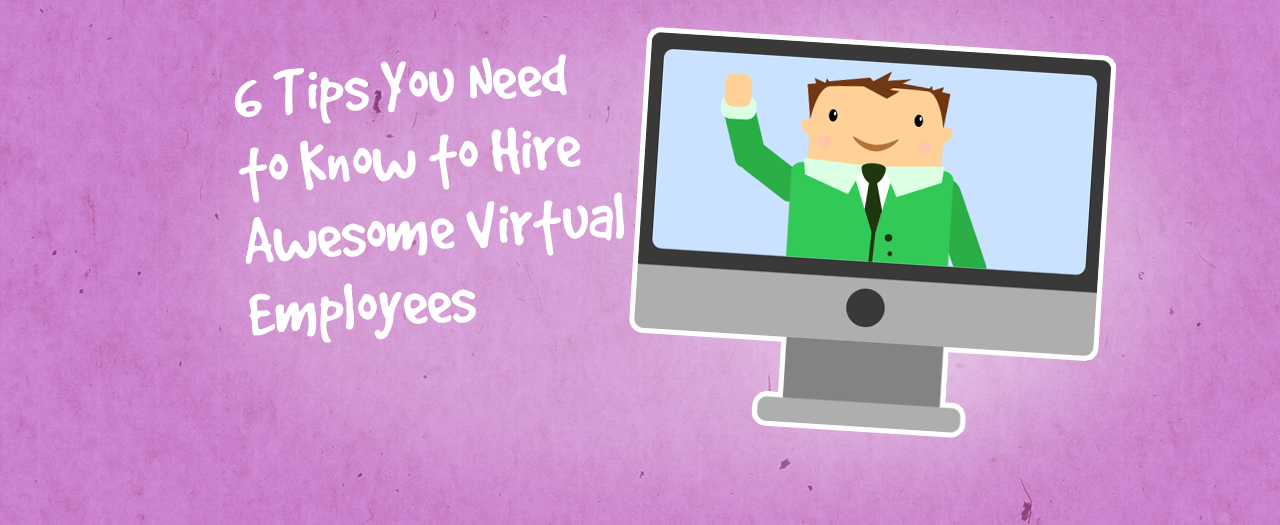Hiring a virtual employee is just like hiring anyone else — except you may never meet them in person. That being the case, you need to be sure they have the skills to do the job and that they will understand your company and get their work done without being in a traditional office.
How do you assess all these skills virtually?
Here are some of the best tips to hire the virtual employees you need:
1. Know where to look
When you’re hiring a virtual employee you can hire from anywhere in the world, so do some research about potential hot spots for the type of talent you’re looking for, and target your job postings there.
If you’re looking for long-term commitments, avoid sites like Freelancer.com or Upwork. While you can find great people there, more often than not, they will be working side jobs and won’t be focused on your business. Instead, use more traditional job posting sites, such as Monster.com, Indeed, or LinkedIn. People on those sites are usually looking for career advancement over a quick buck.

Keith Brink, CEO, Twassistant
2. Use video screening
Using a webcam for interviewing is a must! When hiring virtually, you miss a person’s facial expressions and professional appearance when on the phone. Even though it’s a virtual position, you want to know that the person is still polished and professional in the event travel is involved later down the road or they are on a video call with a client.
It also shows good judgment when a person is dressed professionally for a webcam interview. They should not be more relaxed just because they are interviewing in their home. If they don’t put their best foot forward during the interview process, then when will they? You can tell those who will take the work-from-home position seriously from those who will not.
Have more than one webcam interview scheduled on different days with two different people conducting the interview. You want to see consistency from the candidate during each interview. For example, are they dressed professionally both times? Do they answer questions the same with both people? Were they on time to each interview?

Lisa Archetti, PHR, SHRM-CP, Human Resources Manager, AccountingDepartment.com LLC
3. Get the team involved
Once you’ve narrowed down the candidate pool to just a few top contenders, it’s worthwhile to get input from others — especially those with whom the candidate will have close working relationships.
Team members then have the opportunity to ask questions and engage in a conversation with candidates to get to know them better. This allows everyone to see how a new hire would fit into the company culture, an important but often overlooked factor to consider.

Rick Lepsinger, President, onpoint Consulting
4. Hold a trial run
Take the opportunity to plan a “trial” with each candidate. Maybe for a few hours one day, send them a task or two to complete. Make sure to include a video call meeting so that you can assess their ability to accurately capture your needs and execute them in a quality way.

Rachel Cargle, Founder and CEO, The Aide-de-Camp Collective
5. Test for service skills
I compile a spreadsheet of the top candidates and give them an email from an upset customer to see how they would respond. Even if I am not hiring for customer service I do this. It gives great insight as to how a person treats others, how detail-oriented they are, and much more about their personality.
I then take those responses that I like and do interviews. If I am hiring for a client, then I pick the top three, after I interview, and have the client then talk to them.

Sara Wagers, Online Business Strategist, Virtual Biz Partner
6. Have a conversation
A tip that I feel is underutilized in virtual hiring is just simply having a conversation! Yes, it’s important to ask about job history, education, experience, etc., but that’s also why we have resumes. Talking to people about their interests, their values, asking them to explain how they would resolve virtual conflicts or miscommunication, etc. instigates a much more conversational flow. It helps to not only identify their qualifications, but gives you a feel for whether they could easily mesh into the company dynamic.
Georgette Pascale, President and CEO, Pascale Communications, LLC
How do assess virtual employees? Share your top tips in the comments below!












